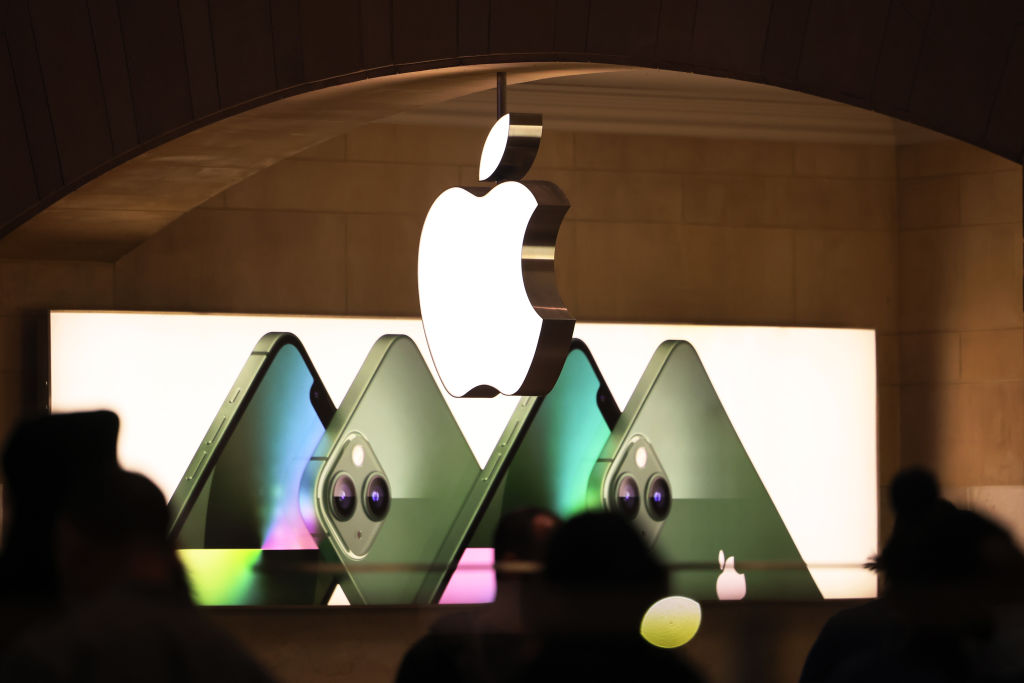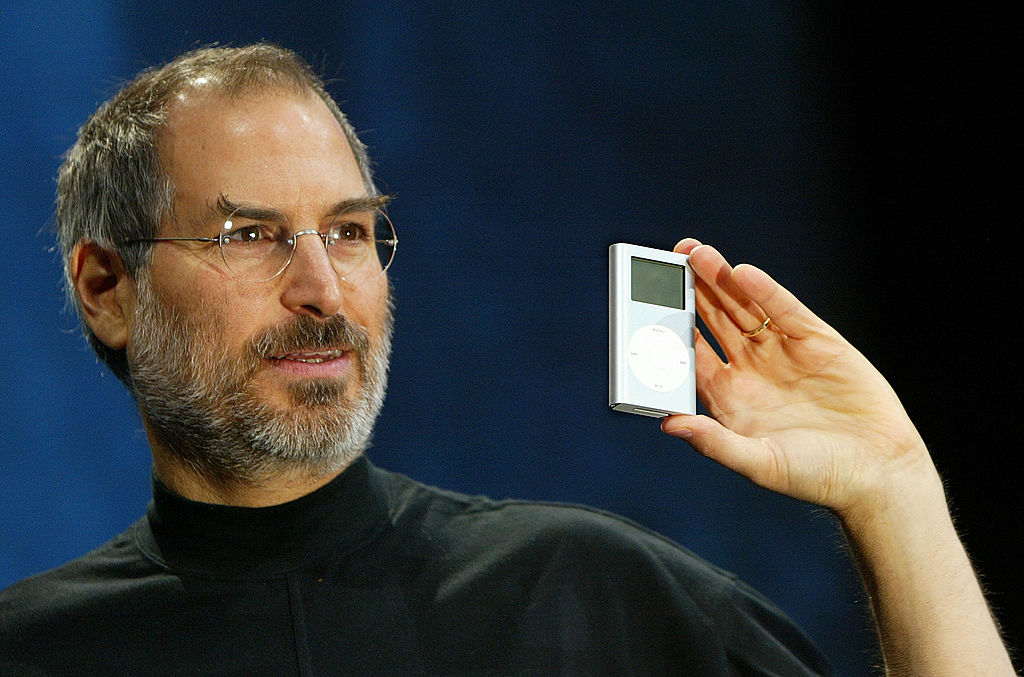“Innovation comes from saying no to 1,000 things to make sure we don’t get on the wrong track or try to do too much,” said the late Steve Jobs. “We’re always thinking about new markets we could enter, but it’s only by saying no that you can concentrate on the things that are really important.”
These days, Team Apple is all about finding new markets, no matter how removed they are from the company’s core focus. Jobs once flirted with an advertising-supported operating system but ultimately gave it a pass. Now, in a strange twist, Apple is doing just that — selling ads in its services that are part of its platform. It wants to become a pooh-bah of digital advertising (it had tried before in 2010 with iAds, an effort that fizzled out).
Whether it is advertising, selling people credit cards, or offering buy-now-pay-later services, we have to ask: why is Apple doing this? The answer is quite simple: these are actions of a company with a golden noose around its neck.
***
Silicon Valley is home to more dramas than even Netflix can produce. Microsoft versus Netscape. Microsoft versus Google. Google versus Facebook. The latest season of corporate psychodramas involves Facebook and Apple.
Facebook and Apple are squaring off in a battle over how we experience our networked lives. Both companies are building wearable devices that could give them a stranglehold on future revenue streams.
“It’s pretty clear that Apple is going to be a competitor for us, not just as a product but philosophically,” Mark Zuckerberg, CEO of Meta, told his staffers. “It’s not just [that] they have a device that has some more features than us. It’s a very deep, philosophical competition about what direction the internet should go in.”
***
Facebook’s data-hungry, privacy-abusing approach to doing business has put the company at odds with Apple, which has done an excellent job of marketing itself as a champion of privacy and data rights. A couple of years ago, Apple developed what it called App Tracking Transparency (ATT), a simple and effective tactic to promote itself as a privacy champion.
Until recently, most internet advertising has worked by tracking how we use the internet and accumulating data to create a profile and target advertising. By their very nature, Facebook and other social networks have even more personal information and thus are able to create more accurate profiles and offer highly effective and targeted advertising. Facebook in particular has been the best at building an efficient ad-targeting system that has turned it into a $117 billion a year business.
Apple decided to do something. They started pushing ATT, which made it mandatory for apps and service providers to seek our permission in order to track us and then serve personalized ads on those apps and services. Less than 40 percent of US iPad and iPhone users have given consent to be tracked. This is akin to Apple taking a proverbial baseball bat and kneecapping Facebook and YouTube.
In 2022, Lotame, a data research organization, estimates that the four major social platforms — Facebook, Twitter, Snap, and YouTube — would collectively lose about $16 billion in revenues. Facebook would lose a whopping $13 billion in likely revenues. That’s a significant number, about a 10 percent haircut for Facebook’s annual revenues.
It seemed Apple was winning on behalf of consumers. Facebook needs every dollar it can find to invest in its cash-hungry foray into the metaverse.
But there is more to all this than meets the eye.
***
A string of recent news stories makes you realize that all this talk of consumer privacy is self-serving. The Wall Street Journal recently reported that Apple, in the past, had tried to work with Facebook. For example, an idea was floated to see if Facebook could develop a premium, ad-free version of the service. Apple, which doesn’t get a cut of advertising dollars in the apps, would get a 30 percent cut of Facebook premium’s subscription revenues. When that didn’t work, Apple decided to go ahead with ATT.
Apple decided to offer advertisers to place their ads on various Apple products. App developers used to buy ads on Facebook to get new installs, and now they have to buy ads on Apple’s App store. There are Google search-like ads in the App Store. Advertising could bring in as much as $6 billion a year by 2025, according to estimates by investment bank JP Morgan. And those estimates might be conservative in light of recent revelations.
Advertising has appeared in the articles in Apple News and Apple’s Stocks app. While this is a small portion of the business, Apple wants it to grow. Otherwise why would it be building a demand-side platform that makes it easy for advertisers to buy ads? Bloomberg speculates that advertisements will likely be rolled out in other Apple-owned services such as Apple Maps and Apple TV.
“Another ironic detail here is that the company’s advertising system uses data from its other services and your Apple account to decide which ads to serve. That doesn’t feel like a privacy-first policy,” writes Mark Gurman in Bloomberg News. You can disable ad personalization, but Apple’s system will still tap into certain data types to personalize ads.
As the saying goes: “Do as I say, not as I do.”
One of the reasons folks like myself are willing to pay a premium for Apple and its products is because you can rest easy knowing that your digital experience will be private, devoid of distractions and other ills of modern technology. Advertising is the first original sin in this carefully crafted experience.
Internet advertising stands on pillars that pillage consumer data and turn them into data sets, to be monetized. It is the polar opposite of what Apple stands for. Yet CEO Tim Cook is willing to let his lieutenants go ahead on this path.
Why? Because Apple doesn’t have a choice. As I said earlier, it has its head in the proverbial golden noose!
***
Apple is valued at $2.8 trillion and is one of the most widely held stocks — its misfortunes can quickly become America’s misfortunes. Whether it is index funds, ETFs, pension funds, retirement accounts, or 401Ks — if Apple sneezes, we all get a cold.
Cook and the team have to do whatever it takes to keep meeting market expectations, growing their revenues, and looking beyond their traditional products to keep goosing those profits.
And even Apple can’t ignore today’s murky economic backdrop. China and the US, two of Apple’s largest markets, have lost their consumption vigor. And more importantly, demand for smartphone markets, like computers and tablets, has reached a level of maturity. The evidence of headwinds came in the most recent earnings report — iPhone sales ticked up marginally, but every other hardware category saw sales decline.
Apple’s best bet is to mine its universe for as much gold as possible. This is why the company is betting on what it defines as “services.” Services include everything from App Store sales, Apple TV+, Apple Music, cloud services, and “others.” The “others” category includes revenues from Apple Pay and advertising. JP Morgan estimates that Apple Payments could become a $4 billion business in a few years.
Since the App Store revenues have started to flatline, it has become critical for Apple to use advertising and payments as engines to keep the “Services” revenues humming. Much of Wall Street’s recent enthusiasm for Apple’s stock stems from the “services” business and its gargantuan margins — over 70 percent versus almost twice that of its hardware business.
These incremental revenue streams and profit sources can’t hide the elephant in the room. It has been seven years since Apple launched a new category-defining product. The last platform-as-a-product was the Apple Watch, launched in September 2015. Except for the Watch, Apple has only released add-ons such as headphones and displays.
While Apple has done an exceptional job designing and rethinking semiconductors that help power their devices, they have yet to launch a new hardware platform that can turbocharge hardware sales. There are rumors that the company is working on new mixed reality glasses that would allow you to experience the digital world in tandem with the real world.
In normal times, that would be enough. But despite Apple’s historical excellence, it isn’t clear if the market is ready for that product. Or if the product is ready for the world.
For now, Apple’s executive team is doing what it can, paying no heed to Jobs’ wisdom and going after every market that can keep their golden noose from tightening.

























